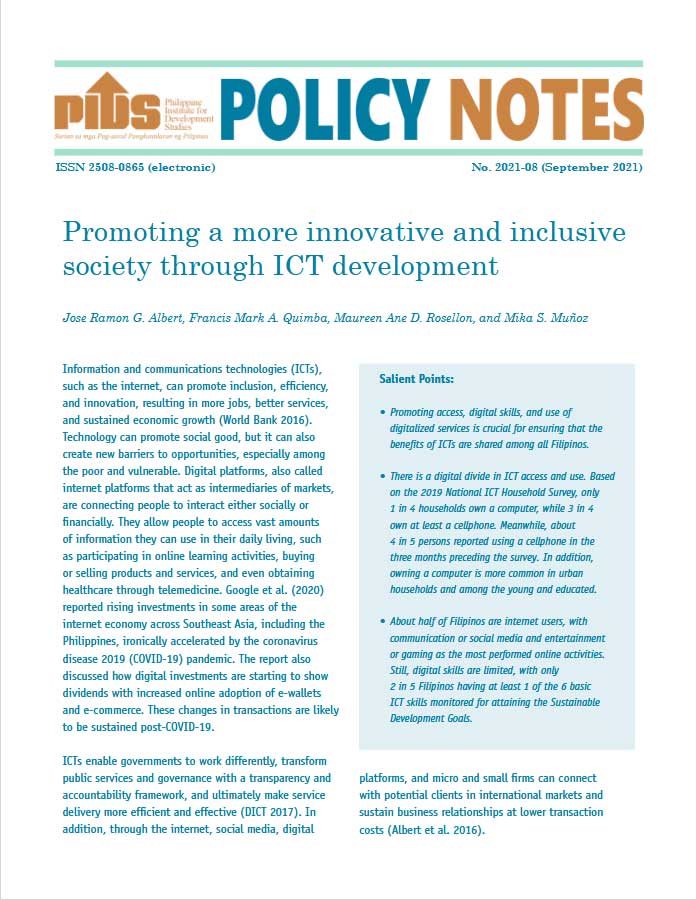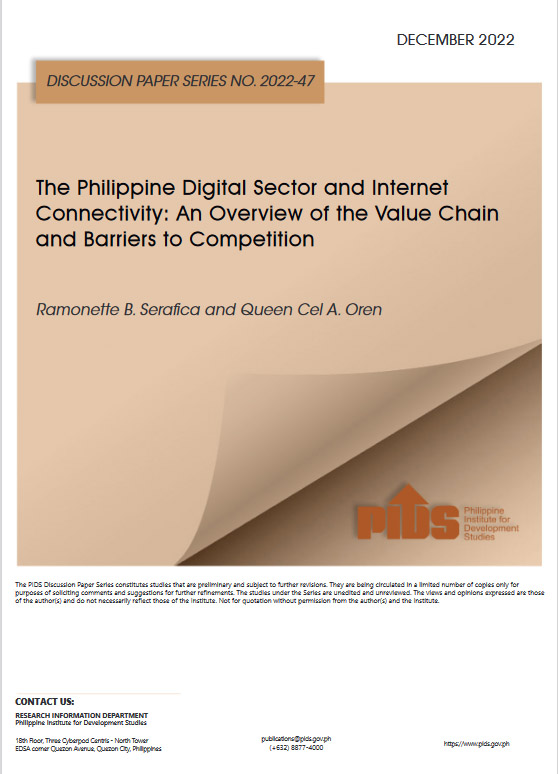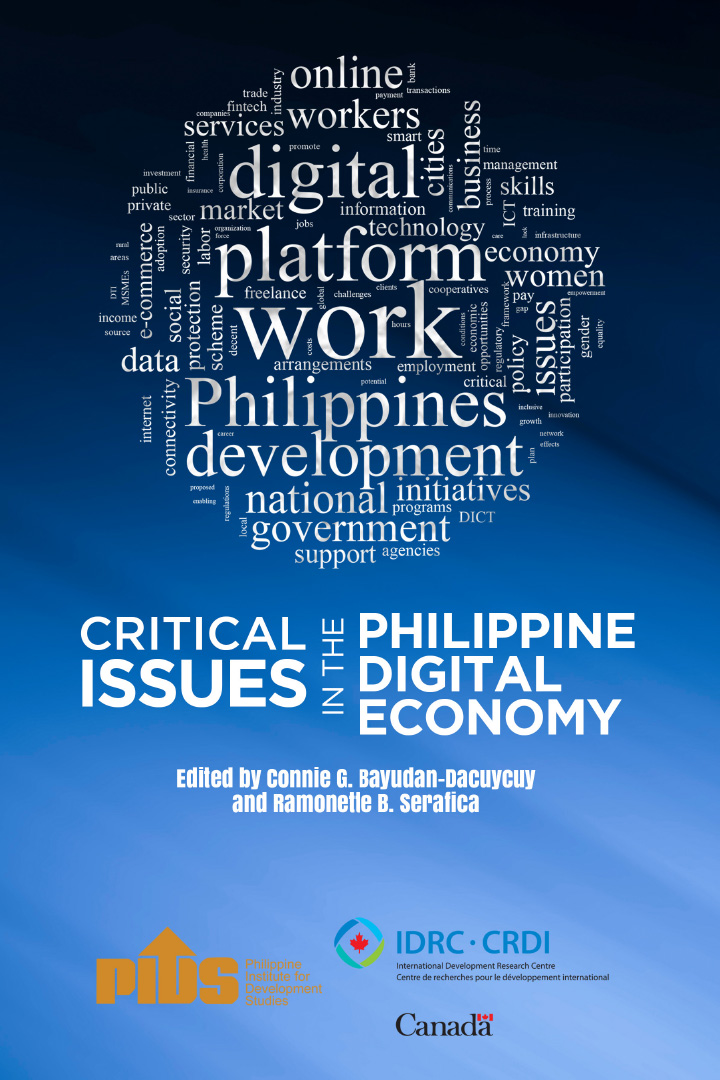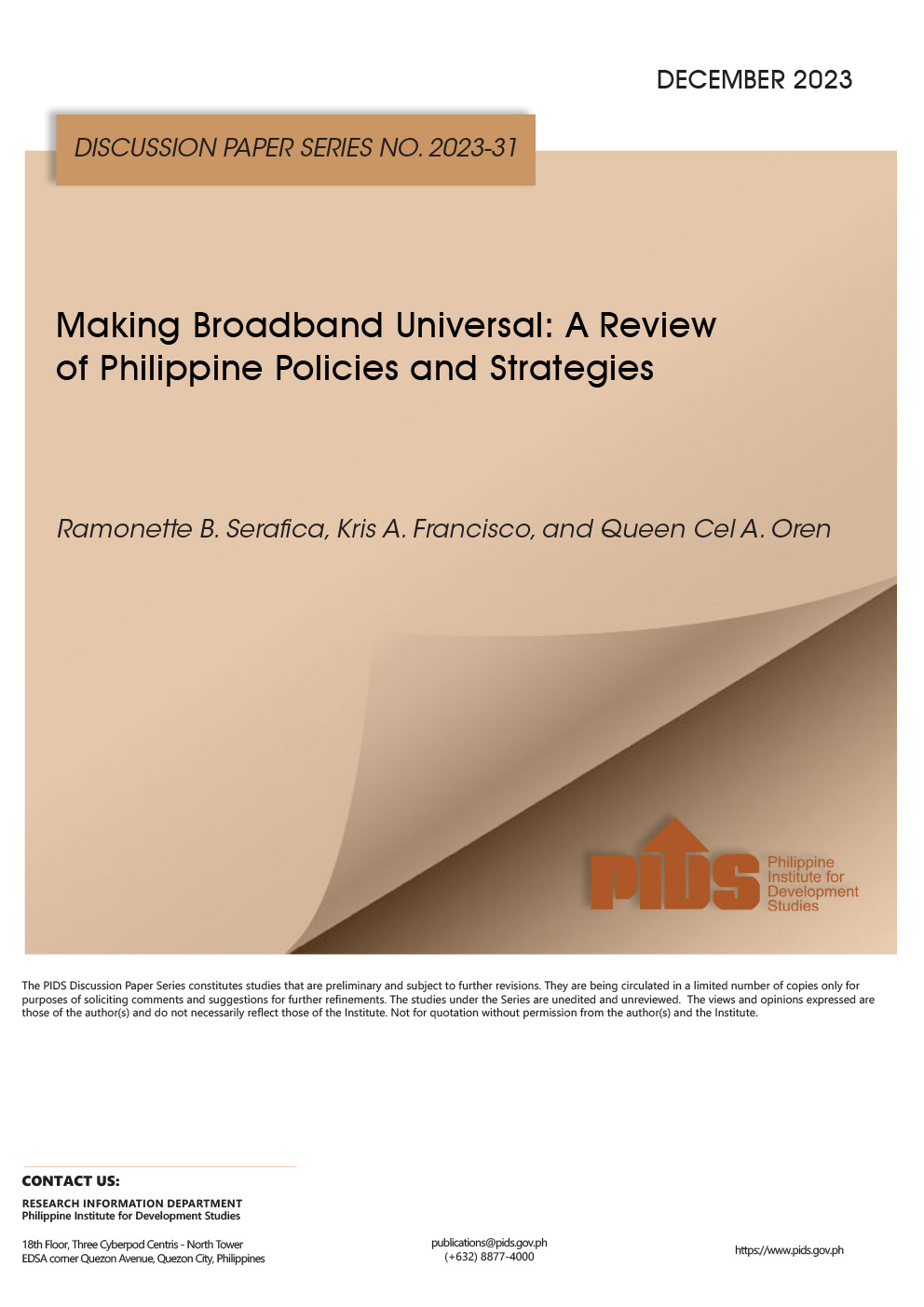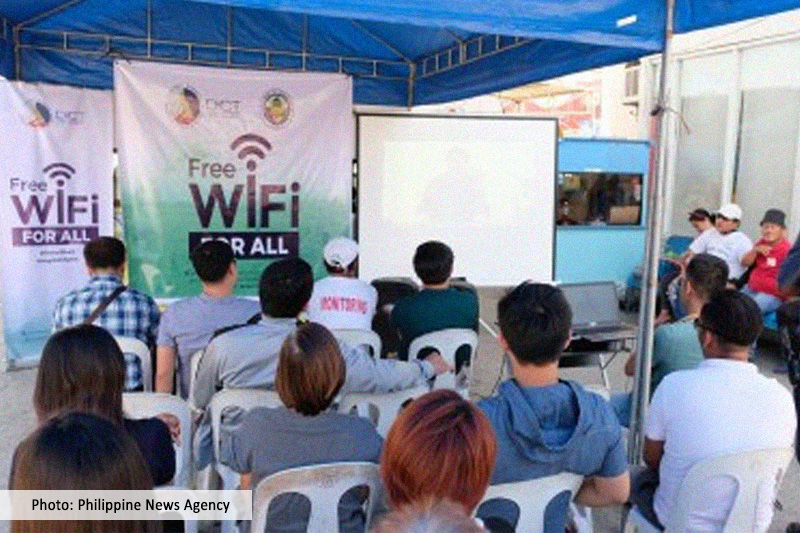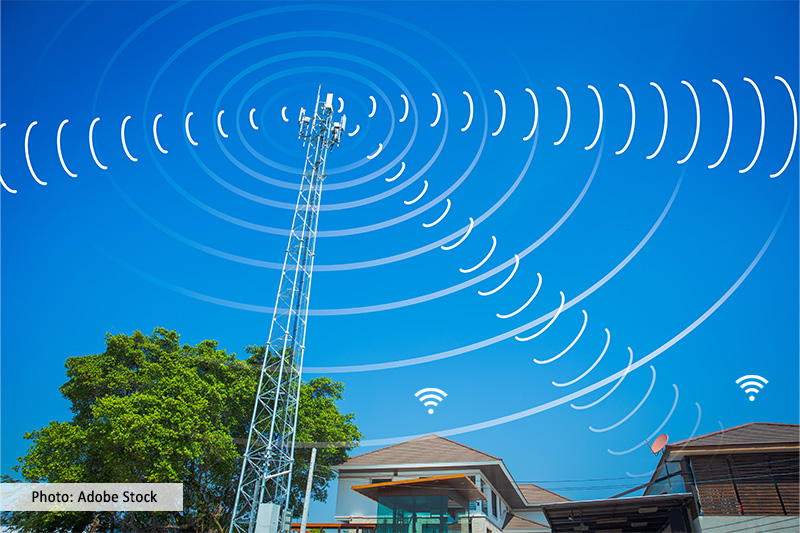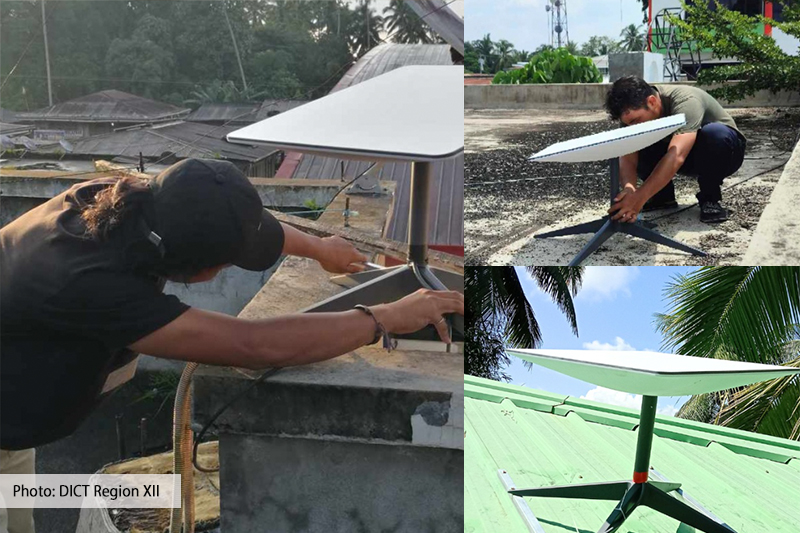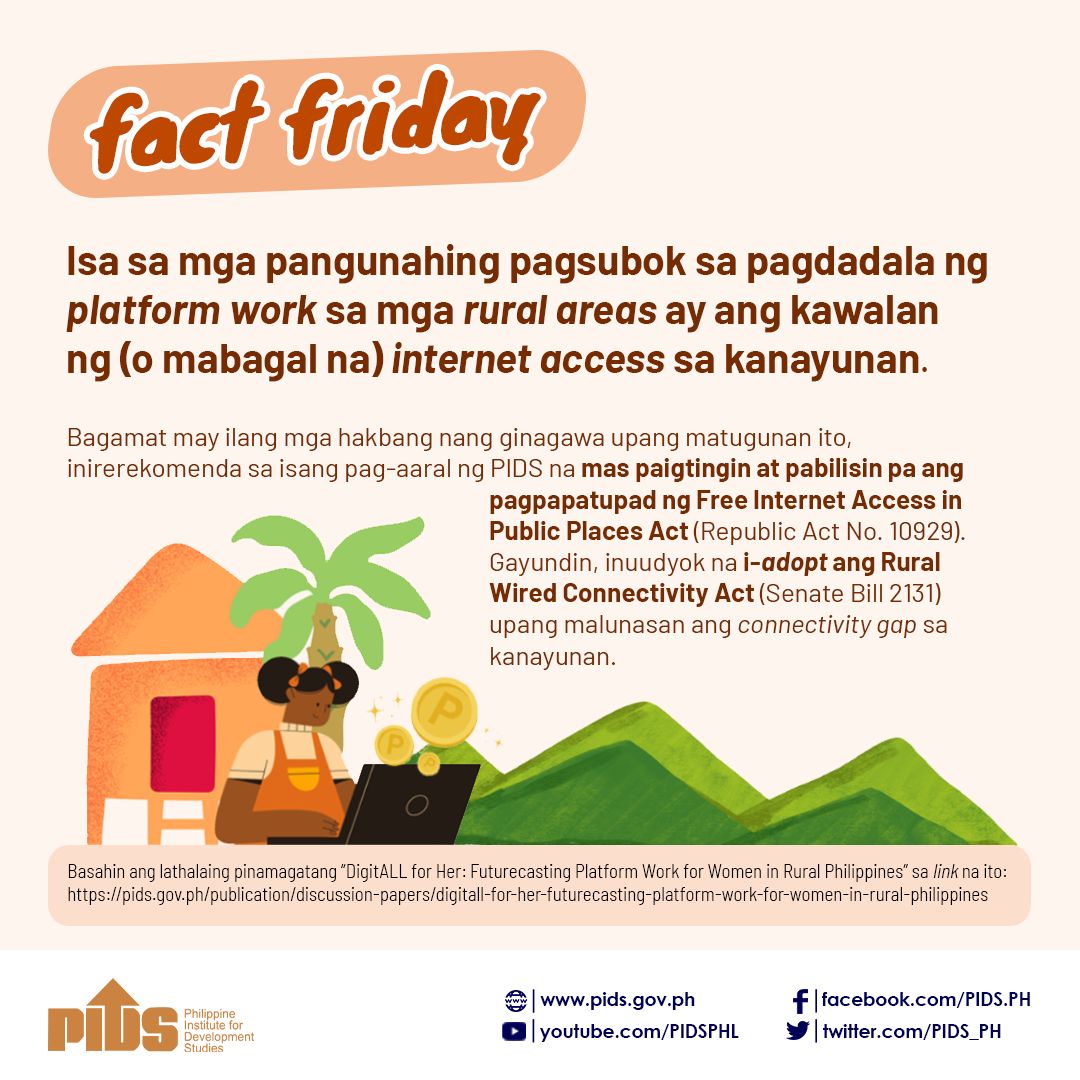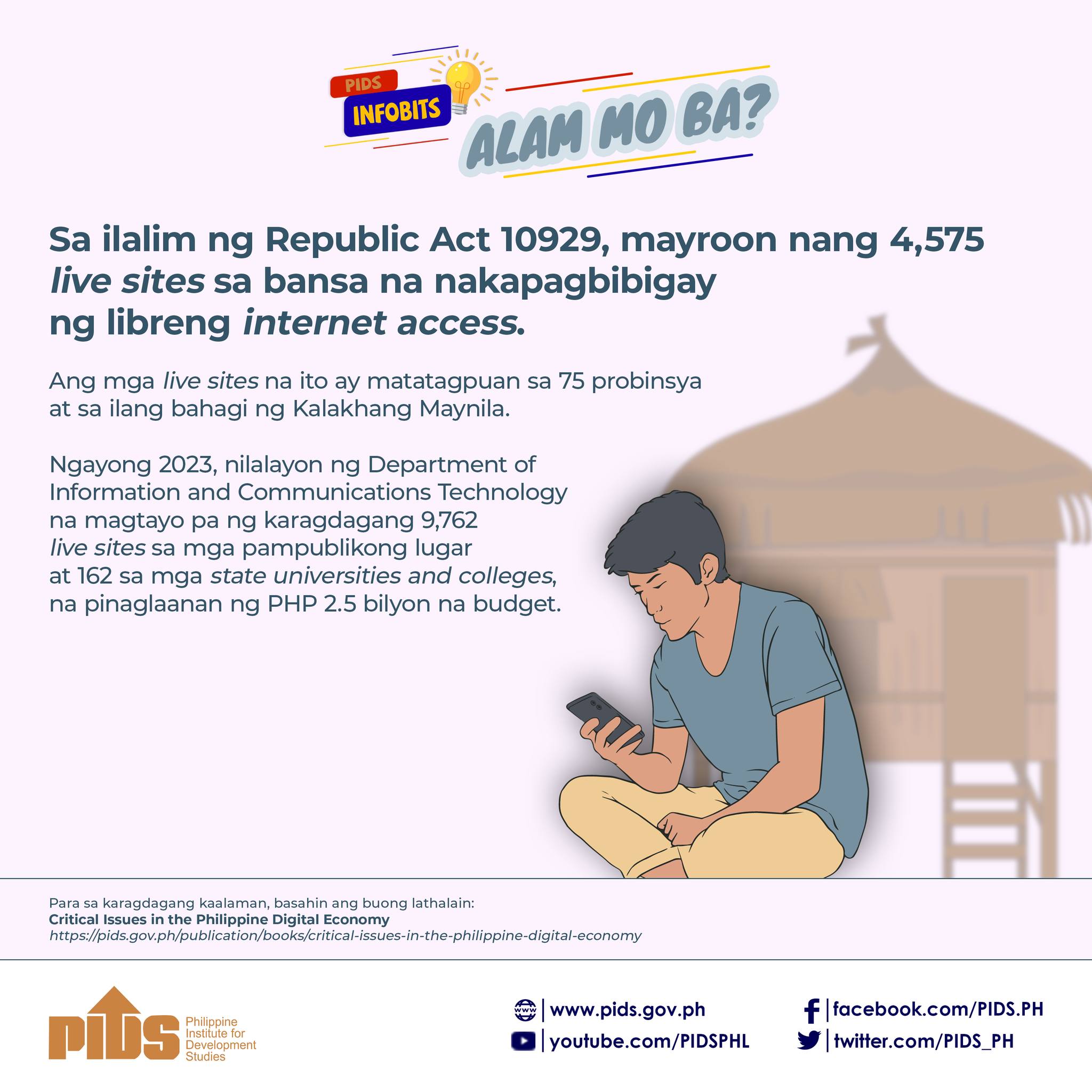Information and communications technologies (ICTs) can enable all segments of society to benefit from digital dividends or widen socioeconomic inequalities further. Thus, this Policy Note provides insights into how the Philippines can advance inclusion and innovation through ICTs. According to the 2019 National ICT Household Survey, only 1 in 4 households own a computer, while 3 in 4 have a cellphone. In addition, owning a computer is more common in urban households and among the young and educated. Filipinos are also not quite digitally skilled, with only 2 in 5 having at least 1 of the 6 basic ICT skills monitored for attaining the Sustainable Development Goals. To make ICTs widely accessible, the authors recommend improving ICT infrastructure in areas prone to exclusion, such as rural and remote communities. For Filipinos to have the skills to use ICTs and harness their many applications, the authors recommend investing in the development and measurement of digital skills. Further, they urge the government to foster digital literacy and internet safety to encourage people to go online, use the internet, and be informed about policies that protect them.
Citations
This publication has been cited 1 time
- Romero, Jasmin. 2021. PH gov't still 'very far' from achieving wider internet access: dev't study agency. ABS-CBNnews.com.

